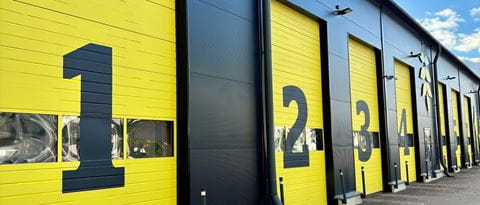
EV home charging
What's the best charging solution for your living situation?
It is not recommended to charge an electric vehicle from a standard household socket, except temporarily, as this can overload the socket and the cabling leading to it. The choice of home charging point is based on the car model and the car preference of the motorist. There are a few different charging standards for the electric car models available, i.e. charging at different speeds and with different types of connectors.
- What is your company's policy on car charging?
Does your employer count a charger as an optional extra? Do they also subsidise the cost of installing the device? Is it cheaper to charge your car at work?
- Does the owner of your property allow the installation of a charging device?
For house owners this is obvious, but in housing companies the matter should be clarified beforehand with the board and the property manager.
- What kind of car will you be charging from the charger?
Will you choose a hybrid or a full electric car? How much power can the car draw?
- What kind of charger can be installed in your home?
Can you install a low-speed or a standard-speed charger in your home? Basic charging always requires three-phase current, so 11 kWh effectively means 3 x 16 A fuses and 22 kWh 3 x 32 A fuses.
- Do you have unlimited or limited car benefit?
A cheaper and simpler charging device is best suited to the limited benefit, as electricity charged at home is not included in the car benefit.
For the unlimited car benefit, it is advisable to choose a smart charger, as the tax authorities require that the amount of electricity charged must be reliably measurable. The smart charger from Plugit automatically takes care of charging your employer directly for the electricity you charge, and returns the cost of the energy used for charging to the account of the person who pays the electricity bill for the property.
- Does your property insurance cover any damage that may occur while charging your car?
A home charger is always permanently attached to the property, so any damage should be covered by home insurance. Employer or car insurance will not cover charging damage to the property.
Sharing the costs and responsibilities of home charging
You can either buy a home charger yourself, or include it as part of the lease agreement for a car purchased through Ayvens. The home charger can be added to the car's accessories and installation costs when ordering a new car. The home charger is then a car-specific accessory which can be purchased at the current market price when the car is returned, or returned with the car.
If you have a car owned or managed by Ayvens, and you want to have the charging costs passed directly to the leasing company, we recommend our partner Plugit as charging providers.
It is always up to the customer company to decide whether to offer the benefit to the driver, so please check with your employer first. The company can either decide to accept the device as equipment, or accept it as an accessory with installation costs. The company may also decide not to accept the charger as an accessory.
If your employer accepts the installation costs in addition to the extra charger, the total cost must be known at the time of ordering and the invoice must be sent to us with the car invoice or from our charger supplier Plugit. Once the car has been ordered, the charger cannot be added to the leasing contract in the middle of the contract period.
If you pay the installation costs of the charger yourself, you can claim a household tax credit for the installation work.
Maintenance, repair, upgrades, service charges charged separately by the charger company or removal/transfer to a new address are not included in the leasing contract, only the cost of the equipment itself or the equipment and installation.
The driver is always the one ordering the home charging device and must verify the suitability of the device for their own use and the necessary permits from the property owner, employer, and leasing company before ordering the car.








